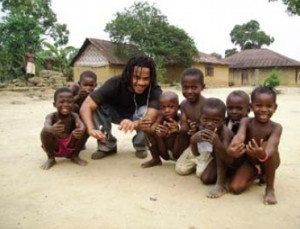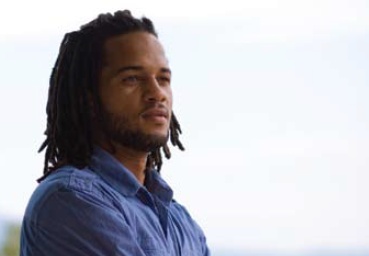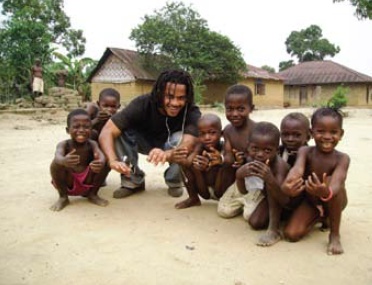
Robert Roche, MA ’08, brings unique qualifications to his role as field program officer for U.S.-based Catalyst for Peace, serving as a “technical advisor” to the Fambul Tok process.
The son of an American man employed by Catholic Relief Services and a Congolese woman, Roche spent his first 14 years living in seven African countries. His mother made a point of speaking to him in French and the dialect of her family, while his father made sure he was versed in English.
“I understand the extended family involved in the Fambul Tok process and the respect for elders,” says Roche. “That’s how it was when I was growing up. If it was a close friend of my mom, I called her aunt.”
Yet he knows he is viewed as an outsider in Sierra Leone – well, anywhere he goes in Africa, actually. “My eyes are not brown and my skin color is not dark enough for me to blend in. And I don’t speak the way anybody speaks here.”
He is ideally suited, however, to his role as facilitator. It taps his cross-cultural background, comfort with Africa’s variety, and his CJP training in trauma healing, mediation, group processes, conflict analysis and restorative justice.
“Everything I learned at CJP I am using. We [trained at CJP] are really knowledgeable compared to many other people I meet working in this field. I don’t want to be biased, but I think that’s the truth.”
Another CJP person involved directly in Fambul Tok is Amy Potter, MA ’02, associate director of CJP’s Practice and Training Institute. As the overall Fambul Tok program officer for Catalyst, she has been integral to the design and implementation of the program.

